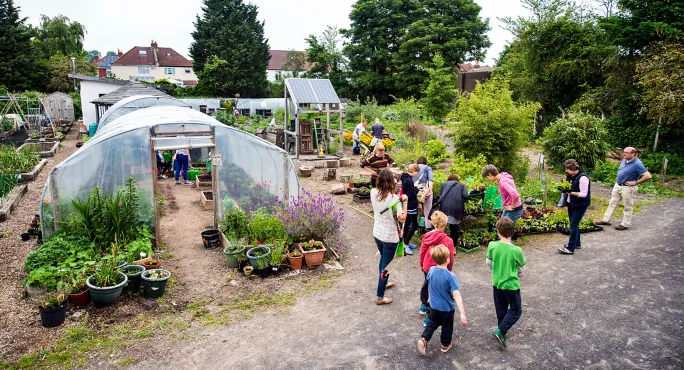Schools are overwhelmingly local services. While some parents and families will seek out schools far away in the interests of finding the best choice for their child, the large majority want a school near to home - especially, but not only, for the youngest children.
Of course, every school seeks to serve its local community. Though United Learning is now a larger organisation, we see ourselves fundamentally as a national group of local schools. Our schools respect the uniqueness of the people and places we serve - and always aim to make a meaningful contribution to their community.
In recent years, though, the context in which we are working has changed markedly because schools are now often the only substantial local service working with children and families in hard-pressed areas. We may feel that school budgets are under pressure - but that is nothing compared to the extreme budget cuts local authorities have faced.
Supporting communities
So it is unsurprising that increasing numbers of schools feel they need to do more to support our communities. The impact of weakening local services on families and on barriers to learning has become a clear problem. That process accelerated during lockdown, when reaching beyond our boundaries became an obvious necessity for many of us.
When United Learning came to set a new five-year strategy in 2021, we were clear that we wanted to strengthen and systematise our community work. We set the goal of 26 community hubs by 2026 - one in every part of the country where we had a cluster of schools - drawing on the facilities and strengths of our schools to offer wider support to families and the community.
We have been grateful to draw on the experience of other schools, especially from our friends at Oasis and Reach Feltham, as we have set up our first 14 hubs. Each one is unique, building on the strengths and assets of the local community as well as its needs, developed by children, families and local residents and organisations, supported by our central team.
Asset-based approach
Individual community hub activities (such as community meals, youth provision, early years groups, walking groups, cooking, family activities, adult learning or community allotments) are not necessarily innovative in themselves. But drawing on the strengths and expressed needs of the community has established real ownership of what the hubs have done.
This asset-based approach creates the conditions for local capacity building and a different kind of engagement between school and family. We are seeing schools report increased parental involvement in children’s education and better attendance.
No loss of focus on education
We are now formalising this work by establishing United Communities as a separate but linked charity. That will enable us to raise more funding from local and national sources and broaden and deepen the work across the country, reaching more communities through our own schools and in the long run through supporting community hubs in other schools as well.
Crucially, it also means that there is no loss of focus on education: community hubs are not another thing for teachers and leaders to do. Instead, they are an independently led and funded resource for the community, making use of school facilities and working in close partnership.
The last Labour government came, in its last years, to see the co-location of services on school sites as an ideal way to strengthen support for children and families. Perhaps falling rolls will create the conditions for a ground-up, present-day equivalent, which also starts to break down the frustrating barriers between services.
Sir Jon Coles is the chief executive of United Learning
For the latest education news and analysis delivered every weekday morning, sign up for the Tes Daily newsletter




